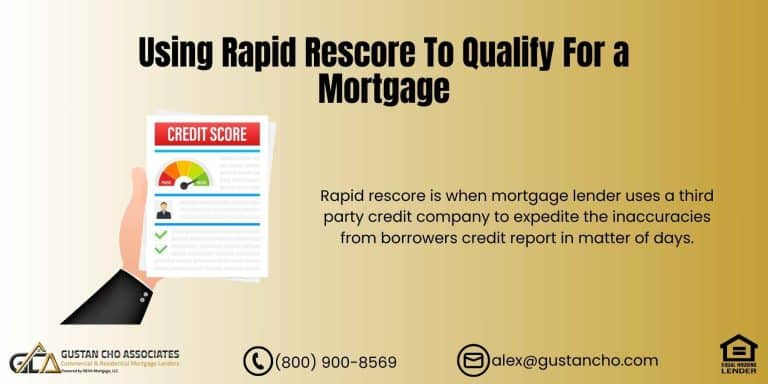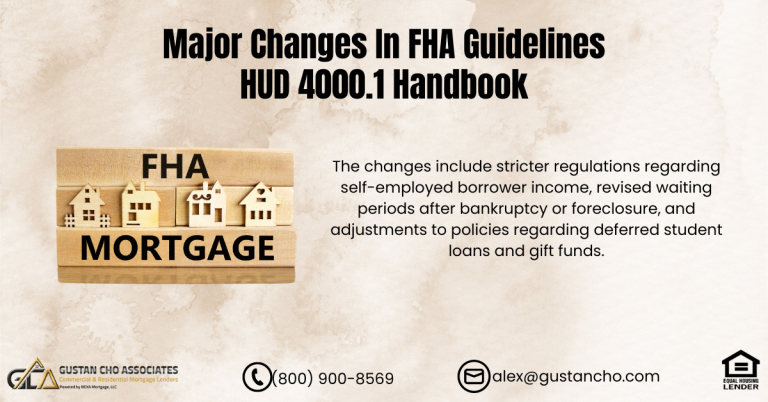Buying a Beachfront Property in Florida: Everything You Need to Know
Florida’s sunshine, sandy beaches, and breathtaking views have made it one of the most popular places in the world to own coastal real estate. Whether you want a second home, a vacation rental, or your forever beach house, buying a beachfront property in Florida is a dream many homeowners share.
But before you sign on the dotted line, it’s important to understand the risks, costs, and Florida beachfront mortgage options.. In this guide, we’ll cover everything you need to know — from flood insurance to financing — so you can enjoy your Florida beachfront home with peace of mind.
Why Buying a Beachfront Property in Florida Is Different
Unlike an inland home, buying a beachfront property in Florida comes with unique challenges and opportunities. You’ll enjoy ocean views and rental income potential, but you’ll also face higher Florida beachfront property insurance costs, stricter building codes, and long-term upkeep.
Florida’s housing market in 2025 is still strong, especially in high-demand coastal cities like Miami Beach, Naples, Tampa Bay, Sarasota, and the Florida Keys. While prices remain higher than inland areas, beachfront property is limited in supply — and that scarcity often leads to long-term appreciation.
Make Your Florida Beachfront Dream a Reality
From condos to single-family homes, we’ll guide you every step.
Assess the Risks Before Buying a Beachfront Property in Florida
When you’re considering buying a beachfront property in Florida, start with the risks:
- Flood Zones – Most beachfront homes are in FEMA-designated flood zones. This means mandatory flood insurance, which can be costly.
- Hurricanes and Storm Surges – Florida averages multiple tropical storms each year. Make sure the home meets hurricane-resistant building codes.
- Erosion and Saltwater Damage – Beachfront homes require more frequent maintenance due to salt air, humidity, and shifting sand.
Tip: Before making an offer, hire a local engineer, inspector, and insurance agent who specializes in coastal properties.
Florida Market Trends for Beachfront Homes in 2025
If you’re buying a beachfront property in Florida in 2025, you’ll want to understand the market:
- High Demand, Low Supply – Retirees, investors, and vacation buyers continue to compete for limited inventory.
- Tourism Drives Rentals – Florida welcomed over 140 million visitors in 2024. Cities like Miami, Fort Lauderdale, and Clearwater are hot spots for Airbnb and VRBO rentals.
- Appreciation Potential – Beachfront property historically holds or grows in value faster than inland homes due to the limited coastal land.
Best Locations When Buying a Beachfront Property in Florida
Not all coastal areas are the same. Here are some popular choices:
- Miami Beach – This iconic destination is renowned for its luxury condos and vibrant nightlife, which attract both tourists and permanent residents. The high demand for property here often translates into higher prices, making it a competitive market for beachfront living.
- Naples – Naples is an excellent spot for families, thanks to its lovely homes and calm, beautiful beaches. The downtown area has some excellent shopping, dining, and cultural spots, making it a really appealing place to live if you want a chill coastal vibe.
- Tampa Bay & Clearwater – These areas boast strong rental demand and more mid-range pricing, making them attractive for both investors and new homeowners. With beautiful white-sand beaches and a variety of recreational activities, they provide a perfect blend of fun and relaxation.
- Sarasota – Sarasota has a relaxed lifestyle that promotes appreciation for the arts and culture. This is clear in its many galleries and theaters. The beautiful beaches also attract people who want to enjoy cultural activities and relax outdoors.
- Florida Keys – The Florida Keys are known for awesome boating and fishing, attracting all sorts of nature lovers and water fans. But with not much land available and prices being pretty high, buyers should jump on any chance they get to snag their little slice of paradise.
When buying a beachfront property in Florida, think about your lifestyle. Do you want boating access? Do you plan to rent the home out? Do you prefer a bustling city or a quiet coastal town?
Waterfront vs. Water View: Know the Difference
When buying beachfront property in Florida, it’s important to know the difference between waterfront and water view properties. Waterfront property means direct access to the beach or ocean, often with private docks or walkways. These places usually come with a higher price tag because of their excellent location and exclusive access.
On the other hand, a water view property lets you enjoy lovely views of the water without being right on it. These homes are more budget-friendly but may not appreciate in value or attract renters as much as waterfront properties. Understanding these differences is crucial if you want to make a savvy investment in Florida’s bustling real estate scene.
Rules and Regulations for Florida Beachfront Properties
Coastal properties in Florida come with stricter rules:
- Zoning Laws—Determine how the property can be used, such as for living in, renting out, or operating a business.
- Building Codes – Homes must be hurricane-resistant, especially if built after 2002.
- Environmental Regulation – Protects dunes, wetlands, and wildlife. Some areas limit building close to the water.
- Public Beach Access – In some counties, even if you own beachfront land, the public may have access rights to parts of the beach.
Always work with a knowledgeable local agent and real estate attorney when buying a beachfront property in Florida.
Buy Smart on Florida’s Coastline
Learn how to avoid mistakes and maximize your investment.
Work With a Real Estate Agent Who Specializes in Beachfront Properties
Choosing the right agent is critical. Here’s what to look for:
- Local Knowledge – They should know flood zones, building codes, and HOA rules.
- Beachfront Experience – Not all agents handle coastal homes. Find one who knows erosion risks and hurricane insurance requirements.
- Strong Negotiation Skills – Beachfront homes often draw multiple offers.
- Industry Connections – Agents with lender, appraiser, and inspector contacts can save you time and money.
Buying a Beachfront Property in Florida: What are Your Options?
Most buyers need a mortgage. At Gustan Cho Associates, we specialize in helping borrowers who may not fit into traditional bank requirements.
Popular Mortgage Options for Beachfront Homes:
Non-QM Jumbo Mortgages
Non-QM Jumbo Mortgages are designed for high-value homes that exceed $1 million, catering to buyers who may not fit the traditional lending criteria. These loans offer flexibility in qualification, allowing for various income documentation options. This makes it an ideal choice for affluent buyers seeking a mortgage for premium beachfront properties.
Bank Statement Loans
Bank Statement Loans are designed for self-employed people with trouble showing standard tax returns to prove their income. Instead of the usual paperwork, lenders look at the borrower’s personal and business bank statements, making it simpler to get approved. This kind of loan is ideal for entrepreneurs who want to buy beachfront homes without dealing with the complications of traditional income checks.
DSCR Loans
DSCR loans, or Debt Service Coverage Ratio loans, look at how much money a property makes from renting instead of focusing on what the borrower earns personally. This type of loan is super attractive for real estate investors who want to buy investment properties since it lets them qualify based on the cash flow from the property itself. With this approach, investors can easily add beachfront properties to their collection without having to depend just on their personal finances.
Asset Depletion Loans
Asset Depletion Loans are ideal for retirees or wealthy individuals without a steady income. With this type of loan, you qualify based on your assets, showing that your wealth can cover your mortgage payments. This option is great for anyone who wants to buy a beachfront home without needing a regular paycheck.
Many banks will refuse you if you don’t meet their strict guidelines. But at Gustan Cho Associates, we have no lender overlays and work with over 280 wholesale investors to find a mortgage solution for you.
Insurance Costs When Buying a Beachfront Property in Florida
This is where many buyers get surprised. Insurance for buying a beachfront property in Florida can be higher than for inland homes:
- Flood Insurance – Required for flood zones; average $3,000–$6,000 annually (varies by property).
- Windstorm & Hurricane Coverage – Extra premiums for coastal areas prone to storms.
- Excess Liability Coverage – Extra liability coverage protects you from lawsuits if you rent your home.
Always get insurance quotes early in the process to know the actual cost.
Maintenance and Hidden Costs of Beachfront Properties
When buying a beachfront property in Florida, budget for:
- Roof replacements every 10–15 years due to salt air.
- Exterior paint and siding upkeep.
- Landscaping, erosion control, and seawall maintenance.
- HOA fees in condo or beachfront communities.
- Property taxes are based on higher assessed values.
These costs add up — but planning ahead will protect your investment.
Property Taxes Considerations Buying Beachfront Property in Florida
Florida does not impose a state income tax, which is advantageous for residents. However, property taxes can be substantial, particularly for beachfront properties with high assessed values. Research the property tax rates in the area where you plan to purchase and include these costs in your financial planning. Alex Carlucci, a senior loan officer at Gustan Cho Associates and an expert in buying beachfront property in Florida, says the following about Homeowners Association (HOA) Fees:
Many beachfront properties in Florida are part of homeowners associations, which may require monthly or annual fees to cover common area maintenance, security, and amenities. Before purchasing, understand the HOA rules and fee structure to ensure it aligns with your financial expectations.
If you plan to rent your beachfront property as a vacation rental, consider the potential income it may generate. Research local rental demand, regulations, and market trends to estimate the potential rental income and factor it into your financial projections. Remember that managing a vacation rental property requires additional costs and responsibilities.
Additionally, obtain the necessary insurance coverage, including windstorm and flood insurance, to protect your investment from potential natural hazards. In your financial planning, account for ongoing maintenance costs, property taxes, and HOA fees. Considering these factors, you can make an informed decision and enjoy your beachfront property in Florida with peace of mind.
Beachfront Buying Made Simple
Financing, insurance, and location—all explained in plain language.
Using Your Beachfront Property as a Vacation Rental
Many buyers offset costs by turning their Florida beachfront home into a vacation rental. Before doing this, check:
- Local Rental Laws – Some counties restrict short-term rentals.
- HOA Rules – Many communities have strict rental policies.
- Tourism Demand – Areas like Miami Beach, Clearwater, and the Keys have high occupancy rates year-round.
A DSCR loan from Gustan Cho Associates can help you qualify based on the property’s rental income instead of your personal income.
Steps to Take Before Buying a Beachfront Property in Florida
Here’s a simple checklist:
- Get pre-approved with a mortgage lender like Gustan Cho Associates.
- Research locations and communities.
- Compare flood zones and insurance costs.
- Work with a specialized agent.
- Inspect the home with coastal experts.
- Budget for maintenance, HOA fees, and property taxes.
- Review zoning, rental, and environmental rules.
Final Thoughts: Buying a Beachfront Property in Florida
Buying a beachfront property in Florida can be a dream come true — but only if you go in with the right plan. From flood insurance to mortgage options, coastal real estate requires extra due diligence. With the proper guidance, you can secure your beach home while protecting your finances.
At Gustan Cho Associates, we help buyers who are turned down by banks every day. With no lender overlays, flexible non-QM loan programs, and deep experience in Florida real estate, we can help you close on your beachfront property quickly and with confidence.
Borrowers who need a five-star national mortgage company licensed in 50 states with no overlays and who are experts on buying a beachfront property in Florida, please contact us at 800-900-8569, text us for a faster response, or email us at alex@gustancho.com. The team at Gustan Cho Associates is available 7 days a week, on evenings, weekends, and holidays.
Frequently Asked Questions About Buying a Beachfront Property in Florida:
Q: Is Buying a Beachfront Property in Florida a Good Investment?
A: Yes, buying a beachfront property in Florida can be a wise investment because beachfront homes often go up in value and can bring rental income.
Q: What are the Risks of Buying a Beachfront Property in Florida?
A: The biggest risks when buying a beachfront property in Florida are flooding, hurricanes, erosion, and higher insurance costs compared to inland homes.
Q: Do I Need Flood Insurance When Buying a Beachfront Property in Florida?
A: Yes, most homes are in flood zones, so buying a beachfront property in Florida almost always requires separate flood insurance on top of regular homeowners insurance.
Q: How Much Does Insurance Cost for Beachfront Property in Florida?
A: Insurance can cost thousands more each year when buying a beachfront property in Florida due to hurricane, windstorm, and flood coverage. Always get quotes before you buy.
Q: Can I Rent Out My Home After Buying a Beachfront Property in Florida?
A: Yes, many people turn their homes into vacation rentals. Check local laws and HOA rules before buying a beachfront property in Florida to make sure short-term rentals are allowed.
Q: What Type of Mortgage do I Need When Buying a Beachfront Property in Florida?
A: Many banks say no, but at Gustan Cho Associates, we offer non-QM loans, such as bank statement loans, DSCR loans, and jumbo mortgages, to help with buying a beachfront property in Florida.
Q: What is the Difference Between Waterfront and Water View in Florida?
A: When buying a beachfront property in Florida, waterfront means direct access to the ocean or beach. In contrast, a water view means you can see the water but don’t have direct access.
Q: How Much Should I Budget for Upkeep After Buying a Beachfront Property in Florida?
A: Expect higher upkeep costs. Salt air, storms, and erosion mean you’ll spend more on roofs, painting, and landscaping after buying a beachfront property in Florida.
Q: Where are the Best Cities to Buy Beachfront Property in Florida 2025?
A: Popular spots for buying a beachfront property in Florida include Miami Beach, Naples, Sarasota, Tampa Bay, Clearwater, and the Florida Keys.
Q: Can I Still Buy a Beachfront Property in Florida with Low or Non-Traditional Income?
A: Yes. Even if you’re self-employed or can’t qualify with tax returns, programs like bank statement loans and DSCR loans can help you buy a beachfront property in Florida.
This article about “Smart Tips for Buying a Beachfront Property in Florida” was updated on September 29th, 2025.
Don’t Let Hidden Costs Catch You Off Guard
We’ll help you budget smart for your Florida beachfront property.










